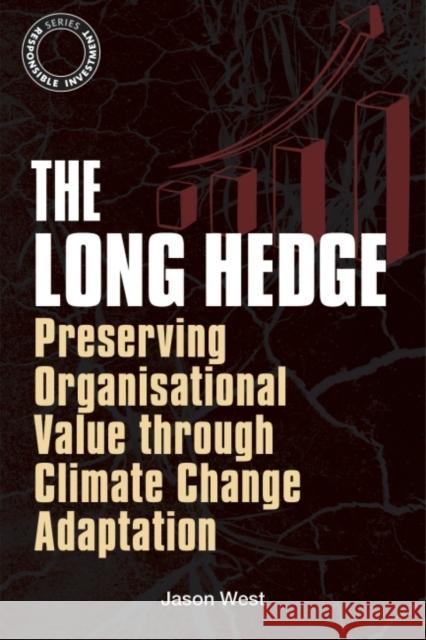The Long Hedge: Preserving Organisational Value Through Climate Change Adaptation » książka
The Long Hedge: Preserving Organisational Value Through Climate Change Adaptation
ISBN-13: 9781907643958 / Angielski / Twarda / 2014 / 344 str.
* Outlines a climate change adaptation framework to help organizations respond appropriately to climate change and adequately inform their investors and stakeholders
* Gives a comprehensive assessment of climate change management in the corporate sector
Between climate change mitigation and adaptation, adaptation is seen as the poor cousin of international climate change efforts. But in the absence of globally coherent mitigation activities, adaptation may one day become the main line of defense for many organizations. Organizations have a clear imperative to assess both costs and benefits of taking action to mitigate the impacts of climate change on their business. They must also adapt their behaviors where economically and practically feasible. Responding to change and managing risks are normal corporate activities, and adaptation to climate change is part of the risk management continuum. However, the main impediment to companies translating incentive into action is in knowing where to start.
Mitigating and adapting to risks and changing circumstances is a natural part of doing business. But methods of mitigating and adapting can be quite different in terms of time, cost and observed impacts. The impacts of mitigation activities are more immediate while the benefits of adaptation activities may take many years to take effect. Nowhere is this difference more apparent than in the case of the corporate response to climate change.
In the context of climate change, adaptation is the process of changing behavior in response to actual or expected climate change impacts. Climate change adaptation is now emerging as a critical partner to mitigation, and indeed may even become the primary protection mechanism for future generations.
In this unique book, Jason West provides a comprehensive assessment of the management of climate change adaptation in the corporate sector. The book provides a formal overview of the range of approaches available along with a series of practical case studies and examples that can be used by companies and other organizations to identify, assess and manage climate change adaptation.
A major focus is on the financial and investment implications of climate change adaptation. West examines how firms can evaluate the investment decisions associated with long-term climate change adaptation measures, including how such investments can be valued and funded, the appropriate accounting treatment of such measures and appropriate risk management and governance practices in relation to such measures. The Long Hedge will illuminate the path towards measuring vulnerability, managing climate risks, modelling financial exposure and properly disclosing the costs and benefits of such actions to investors and stakeholders. The book also considers the needs and interests of investors and other stakeholders, and considers how they can assess the adequacy and appropriateness of corporate action on climate change.











